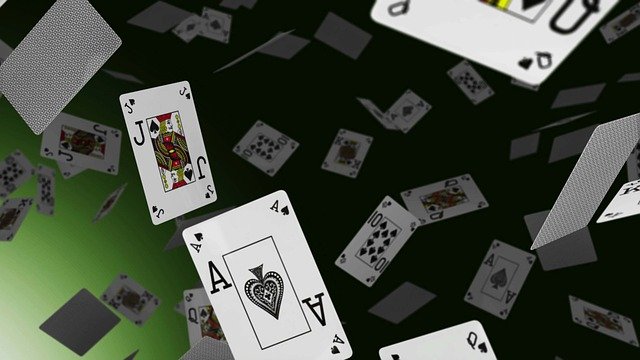

We’ll begin this article with an important point: Poker should not be looked at as a means of reliable income. The majority of players lose more than they win; some estimates suggest that about 70% of players lose, and others peg the number at more than 90%. Either way, most players leave games with lighter pockets.
At the same time though, real-money poker is a fun hobby for a lot of people, and one that can result in earnings. Furthermore, it may come as a surprise to some to learn that the popular card game has actually been proven to be a game of skill, rather than chance. Per a study of online poker by PLOS One, a significant skill factor “dominates the luck factor” after a moderate duration of play in non-tournament online cash games. The study thus states that it can “legitimately conclude” that skill is an important factor.
Once again, that doesn’t mean poker should be looked to for reliable earnings – not even by those with skill. But it does indicate that online poker can be learned, and that you can hone your abilities and make it more likely that you’ll earn money playing. And if that’s the goal, the following tips will start you off in the right direction.
1) Know The Game Inside & Out
This may seem like a broad, general tip, but it’s actually an important one to take seriously –– because it’s not enough to enter cash poker games with just a basic understanding of the rules and expect to win. There is always more to learn, but before you start trying to earn money through the game, you should be fluent, at the very least, in these areas:
- Hand Rankings – Are you going to hesitate about the value of your straight versus a flush? Can you confidently say which ranks higher between three-of-a-kind and two-pair? If these questions give you pause, you need to study the hand rankings further before competing.
- Terminology – Odds are you know your basic poker terms. But are you going to get confused if someone talks about a rainbow flop, or if the dealer indicates you’re the big blind? If so, it’s time to hit that glossary again.
- Betting Sequences – Whatever varieties of poker you choose to focus on, it’s also vital to know –– as second nature –– when you’re going to have an opportunity to bet (or fold). The sequences differ between varieties of the game
These are only a few areas to focus on, but they demonstrate what it means to know the game inside and out.
2) Be Ready To Learn & Reflect
As important as it is to know the ins and outs of the game going in, it’s also crucial that you be able to adapt and hone your skill based on your play. As is conveyed in a piece by Poker.org on becoming a poker pro, some of the most important factors –– even for the best of players –– are being able to do honest self-assessment, and being ready to learn constantly.
As the piece notes, poker is “a game of skill over the long-term,” which means that you need to continue developing, reflecting, and learning new skills and strategies if you hope to ultimately win more than you lose. By contrast, if you approach the game with a stubborn mindset –– unable to assess your own play or learn new strategies –– you’re likely to repeat your worst tendencies and lose more often.
Willingness to adapt and eagerness to learn are aspects of skill in poker.
3) Set That Ego Aside
The same piece referenced above also mentions that it’s important to check your ego if you’re to succeed in poker. And this, for many, can be a difficult task –– because of course you want to play the game with confidence and belief in your ability.
Regarding this consideration, it’s helpful to give some thought to the differences between ego and confidence. As a BusinessInsder.com article about ego explains, the primary difference is the arrogance factor. A big ego “denies weakness” (which hurts you in those learning and self-reflecting efforts), “declares that failure isn’t an option” (an unrealistic attitude that will backfire in poker), “hides mistakes,” and “insists on never quitting” (which can land you in a big hole quickly at the tables). These are arrogant positions rather than confident ones, and they’re signs of a runaway ego. They also directly counter wise poker strategies and approaches –– which is why part of establishing winning habits means keeping that ego at bay.
4) Focus On The Bluffs
Finally, remember that you’ll need to focus on opponents, in addition to the game and your own approach. This can mean learning to read individual opponents, or recall their tendencies. More generally though, it means studying up on bluffs, and how you might recognize when an opponent is acting deceptively. It’s a tricky skill to master, and one that even the pros are always honing. But there are a few signs to look for, including the following:
- An opponent is acting very quickly
- An opponent’s bets don’t make sense based on the cards being revealed
- An opponent is talking too much or too quickly
- An opponent is too aggressive
- A live opponent holds eye contact
While these are not ironclad signs of bluffing, they’re among the things you can learn to look for that often indicate an opponent is acting deceptively.
Follow these tips –– and keep at them over time –– and you’ll improve your poker game to the point at which you’ll be more likely to win more than you lose. There’s never a guarantee of earnings (or anything close to one), but improving your understanding of the game, your approach to learning and ego management, and your understanding of opponents can go a long way.
Thanks for reading, and please check out more of our earning tips here at Your Life For Less when you get a chance.





